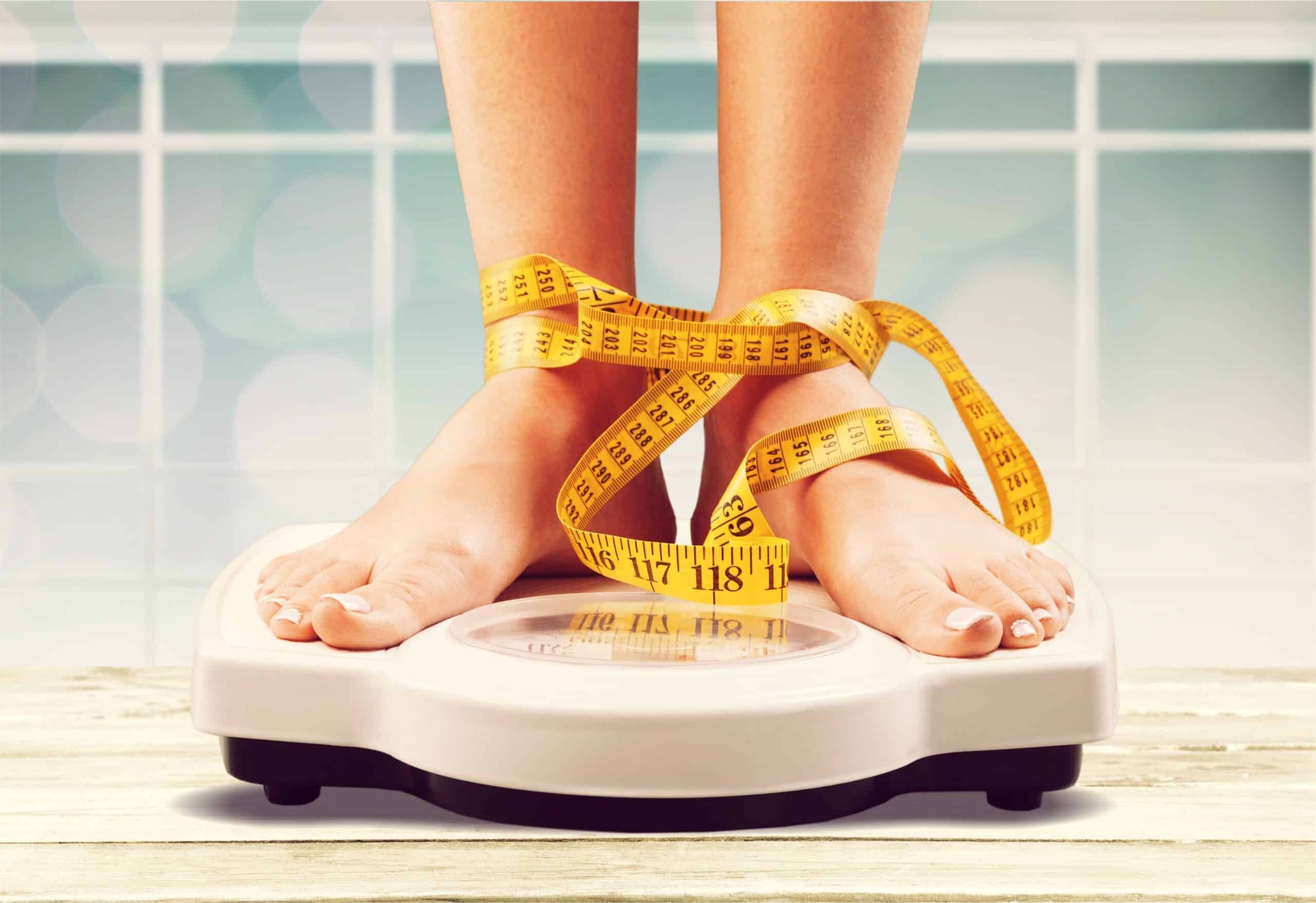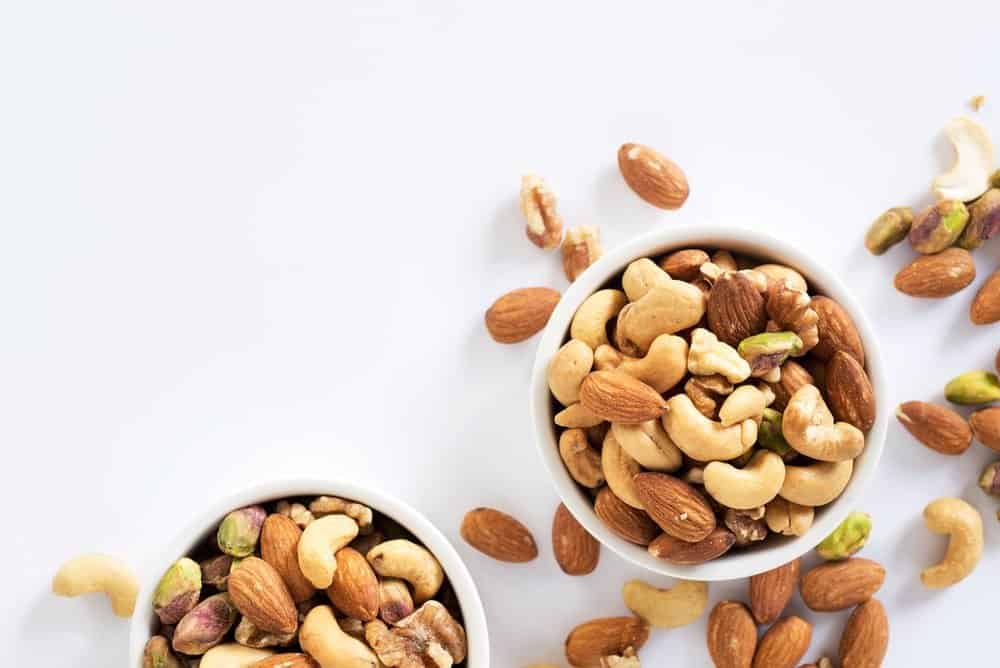Blog

How to manage weight gain in menopause
Three reasons why weight loss is NOT the answer to managing the effects of menopause (and what to do instead)
If you’ve done some research into how to prioritise your health during menopause, you’ll know that a lot of the information centres on preventing or addressing weight gain. Ugh!
Changes in body weight and shape around menopause are common and completely normal, caused mainly by changing hormone levels. The main hormones affected by menopause are estrogen, progesterone and follicle-stimulating hormone (FSH).
One physical change you may notice as menopause approaches is your body shape. Prior to menopause, fat is mostly around the hips, thighs and bum. When estrogen levels begin to drop as menopause begins, this can lead to weight gain around the abdomen.
While this may be aesthetically undesirable to some, this weight gain is actually your body trying to help you! While the majority of estrogen is produced by the ovaries, fat cells can also produce estrogen. When ovarian function slows down with menopause, and estrogen production with it, additional fat stores can help to relieve some of the effects of menopause caused by estrogen deficiency.
Many health professionals blame the symptoms and increased health risks associated with menopause on the increase in fat around the abdomen. While there is some evidence to support this theory, there is also a whole host of reasons why our team at Embody Health London doesn’t recommend weight loss as a solution.
ONE: Weight loss is unsustainable
If you’ve followed us on social media for a while, you’ve probably heard this before! But here it is again: 97% of dieters regain all the weight they lost (and then some) within three to five years.1
This is compounded with the fact that physical changes during menopause are part of the natural ageing process. Just as our bodies change involuntarily during puberty, menopause is simply the next unavoidable stage in the lifespan, and fighting your body is never the answer.
TWO: Eating disorder risk is increased
The period of transition to menopause is often a time of vulnerability and discomfort within one’s body. As such, it probably comes as no surprise that this period comes with an increased risk of eating disorder development.2 In fact, more than 13% of women over 50 years of age report at least one eating disorder symptom.3
Since research shows that dieting is a significant risk factor for the development of an eating disorder, it must be advised against particularly during this already-vulnerable time.4
THREE: Health can be improved irrespective of weight loss
That’s right – you can be the heaviest AND the healthiest you’ve ever been! Research shows that increasing healthy behaviours, such as eating a nutrient-rich diet and exercising, have a greater positive impact on health than weight loss.5
Luckily, there are plenty of strategies you can implement to prioritise your health during menopause (and beyond) that have nothing to do with the number on the scale.
What to focus on instead of weight loss
Bone health
You’ll come to realise while reading this article that although estrogen is technically considered a “sex hormone”, it affects so much more than just the reproductive system.
One of the functions of estrogen is to support bone health by regulating the activity of osteoclasts (cells that destroy bone) and osteoblasts (cells that produce bone). When estrogen levels drop during menopause, the bones become susceptible to a loss of density, which can lead to issues like osteoporosis.
The key nutrients that protect bone mass are calcium and vitamin D.
Calcium-rich foods include dairy products, leafy green vegetables, nuts, legumes and fish with edible bones. The daily recommendation for post-menopausal women is 1300mg, which might look like a small tub of yoghurt, a serve of hard cheese (40g), a glass of milk, a cup of spinach and tin of canned salmon (with bones). Calcium can also be supplemented (in discussion with your doctor) if this is unachievable for you.
Vitamin D is essential for the effective absorption of calcium. As you probably know, the best source of vitamin D is the sun and it is difficult to obtain from food. Consequently, if you live in an area that gets limited sunlight such as the UK in the winter months, a supplement is likely necessary.
Heart health
Estrogen helps to keep the blood vessels healthy and flexible. When levels decrease in menopause, the blood vessels can become stiffer, increasing the risk of heart disease.
Additionally, there is also often a decrease in HDL cholesterol (the “good” cholesterol) and an increase in LDL cholesterol (the “bad” cholesterol) with menopause, thought to be related (at least in part) to elevated FSH levels.6 LDL cholesterol can collect in the arteries over time, narrowing them and increasing the risk of cardiovascular disease. HDL cholesterol helps to remove the LDL cholesterol from the arteries and escorts it to the liver, where it can be broken down and removed from the body.
Health-promoting nutrients for the heart include unsaturated fats and fibre.
Unsaturated fats are those found in plant-based sources like avocado, nuts, seeds and oils, as well as fish like salmon and tuna. These fats work to improve heart health by increasing the levels of HDL cholesterol, subsequently decreasing LDL cholesterol.
You probably think of fibre as being great for the gut (which it is!) but it’s also great for heart health. Similar to the role of HDL cholesterol, fibre can bind to LDL cholesterol and help to remove it. Fibre-rich foods include wholegrains, fruits and veg (especially the skin!) and nuts and seeds.
Moving your body
You know that exercise is good for you, but did you know it’s one of the best things you can do for yourself during menopause?
Mood and sleep disturbances are a common symptom of menopause. However, exercise, a good mood AND a great night’s sleep are like peas in a pod!
Physical activity can also assist in counteracting the increased risk of poor bone and heart health. Weight-bearing and resistance exercise are excellent for strengthening bones, while cardio-based activities can strengthen the heart muscle and reduce blood pressure and cholesterol levels.
Studies have also found a relationship between high intensity exercise and fewer, less severe hot flushes.7 So find an activity you love to do and get moving!
In addition to these strategies, there are numerous medical interventions that may help to manage your symptoms that your doctor can chat with you about.
If you feel that you would benefit from one-on-one support, our expert dietitians are here to help! Reach out at [email protected] to learn about how we can support you.
Karli Battaglia MDiet, APD
EHL Team x
References
- Mann T, Tomiyama A, Westling E, Lew A, Samuels B, Chatman J. Medicare’s search for effective obesity treatments: Diets are not the answer. American Psychologist. 2007;62(3):220-233.
- Baker J, Runfola C. Eating disorders in midlife women: A perimenopausal eating disorder?. Maturitas. 2016;85:112-116.
- Gagne D, Von Holle A, Brownley K, Runfola C, Hofmeier S, Branch K et al. Eating disorder symptoms and weight and shape concerns in a large web-based convenience sample of women ages 50 and above: Results of the gender and body image (GABI) study. International Journal of Eating Disorders. 2012;45(7):832-844.
- Golden N, Schneider M, Wood C. Preventing Obesity and Eating Disorders in Adolescents. PEDIATRICS. 2016;138(3):e20161649-e20161649.
- Bacon L, Aphramor L. Weight Science: Evaluating the Evidence for a Paradigm Shift. Nutrition Journal. 2011;10(1).
- Poehlman E. Menopause, energy expenditure, and body composition. Acta Obstetricia et Gynecologica Scandinavica. 2002;81(7):603-611.
- Kandiah J, Amend V. An exploratory study on perceived relationship of alcohol, caffeine, and physical activity on hot flashes in menopausal women. Health. 2010;02(09):989-996.














